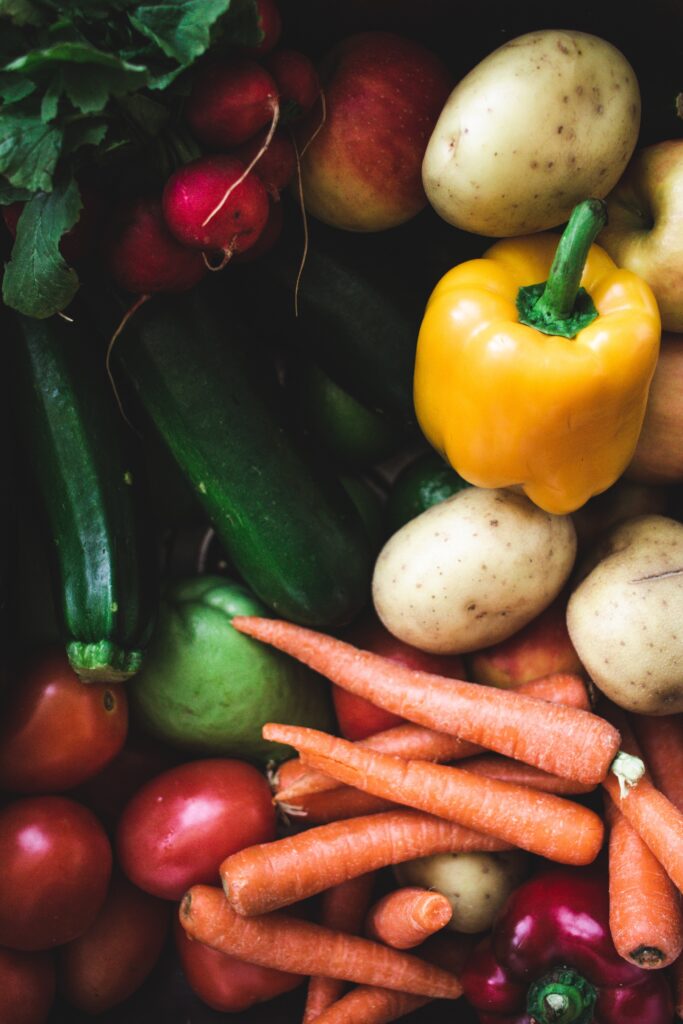Foods To Eat If You Have Depression

Depression and anxiety are widely discussed in the mainstream. Most of us have moved past the stigma and are open to talking about mental health; hence, there is an abundance of articles on the matter. With the plethora of information online, it can be hard to discern what works and what does not.
A popular remedy against depression is diet. Many articles cite dietary changes as an effective way to treat depression. But, does it work?
While dietary changes do not cure depression or anxiety, an investigative study from 2020 compiled data from other studies dating 2012- 2019 regarding the effectiveness of dietary changes on depression and anxiety. The researchers found that diet is effective in postponing or curtailing depressive symptoms. The diet recommendations varied from study to study, yet there were similarities.
Below is a compilation of foods to eat if you have depression.
- Healthy fats
The 2020 investigative study cited a Finnish study that had positive feedback from a diet rich in chicken and healthy fish in protecting or preventing depressive symptoms. The subjects who adhered the most to the dietary restrictions reported fewer depressive symptoms.
The reason for the positive results may correlate to the intake of healthy fats. Healthy fats play a vital role in reducing inflammation. A 2019 study found that the development of depression and anxiety is associated with the increased activation of the immune system, which affects the peripheral and central nervous systems. Further proof of this link is found in the treatments for depression and anxiety. Antidepressants have been shown to decrease inflammation.
Hence, consuming fish high in omega-3s and healthy fats such as salmon, tuna, and mackerel is a great idea. If you are vegan or vegetarian, you can get healthy fats by consuming nuts and vegetables such as avocado, walnuts, pecans, ground flaxseed, and soy.
- Plenty of fruits and vegetables
Another way to reduce inflammation in your body is to increase your overall health is by consuming lots of fruits and vegetables. Fruits and vegetables are rich in vitamins and minerals. These vitamins and minerals can help produce antioxidants in your body.
Depression and anxiety cause lots of stress; consequently increasing levels of cortisol and oxidative stress. Oxidative stress creates an imbalance between the production and accumulation of oxygen reactive species (ROS) in your body. Hence, it affects your body’s ability to detoxify and repair itself. ROS imbalances (reactive species) can cause cellular and tissue damage.
So, what is the connection between oxidative stress and depression?
Oxidative stress can produce epigenetic changes to your brain’s structure. High levels of oxidative stress have been linked to other neurological diseases such as Alzheimer’s, Parkinson’s, ALS, and multiple sclerosis.
Eating lots of fruits and vegetables can help your body take in essential vitamins and antioxidants that will help your keep depressive symptoms at bay. Some recommended foods are berries, leafy greens, beets, and dark chocolate.
- Eat your vitamins
Two vitamins that are necessary to combat depression are folic acid and vitamin B12.
Foods with folic acid and B12 vitamins are necessary for the production of serotonin. As you know, serotonin is a mood stabilizer, so it plays a vital role in reducing depression and anxiety. It also maintains bone health and heals wounds.
Because serotonin is primarily produced in your gut, it is best to take in food that will help your body produce it.
Typically, vitamin B12 is found in animal products: meat, dairy, and eggs. If you do not consume meat, you can also ingest vitamin B12 via supplements. Sublingual drops are usually more bioavailable.
Folic acid, also known as vitamin B9, can be found in vegetables like brussel sprouts, legumes, asparagus, leafy greens, broccoli, beets, and citrus fruits.
- Cut out fake grains
Studies from both Australia and France show that adherence to diets similar to the Mediterranean and AHEI ( Alternative Healthy Eating Index) diet can reduce the risk of depressive symptoms.
Studies from Australia and France found these diets effective among pregnant women and adults, respectively. Additionally, in France, adherence to the diet and increased physical activity was associated with a significant reduced risk of depressive symptoms.
So, consider adopting a diet that consists of whole grains, vegetables, legumes, fruits, nuts, seeds, and spices.
- Consider taking amino acids.
Amino acids are vital for good health. Many of us believe that simply eating well is enough to help us get the right amount of amino acids. However, some of us, due to malabsorption, may not be getting enough amino acids in our diets.
Before I delve into what amino acids you should consume, I’ll quickly explain what are amino acids. Amino acids are the building blocks of proteins and are composed of organic compounds along a variable chain. There are at least nine essential amino acids: histidine, isoleucine, leucine, lysine, methionine, phenylalanine, threonine, tryptophan, and valine.
Because amino acids are not produced in your body, you must get them from your diet.
Of the nine essential amino acids, tryptophan is one of the most important. Tryptophan is vital because it has so many functions in your body. Tryptophan is a precursor for two important metabolic processes. One is the synthesis of serotonin. Your gut bacteria converts tryptophan to 5-HTP and then it is synthesized into serotonin. Hence, it functions as a mood regulator.
However, there may be obstacles preventing your body from producing enough serotonin. If your gut health is not the best or if you are low on good bacteria, your body may have trouble converting and synthesizing tryptophan. Additionally, all essential amino acids work together, so if you are low on one of them, the others may not be absorbed well.
- Go low sugar
Cutting back on sugar has become a popular trend nowadays because we have all understood that sugar has adverse effects on our health. Not only does it harm your physical health, but it can also impact your mental health.
Sugar increases inflammation in your body, and therefore puts you at a higher risk for depression and anxiety. If you already have depression or anxiety, sugar makes it worse.
But, sugar can show up in your food in sneaky ways. Fruits and vegetables also have sugar, however, that does not mean you should stop eating vegetables and fruits. No, just pay attention to the glycemic index of the foods you are eating. Foods like bananas and mangos have a high glycemic index. For others, their glycemic index depends on how you cook them. For example, a baked potato has a higher glycemic index than a boiled potato.
Being cognizant of the thoughts that enter your head is just as important to what you put in your body when it comes to taking care of your mental health. So, do your best to eat well and be happy. If you have any questions or concerns regarding the points mentioned, please consult a medical professional. Before drastically changing your diet, please consult with your doctor.
While there is no official cure for depression, there are ways you can help yourself.
Take care!
Adjibade, M., Julia, C., Allès, B., Touvier, M., Lemogne, C., Srour, B., Hercberg, S., Galan, P., Assmann, K. E., & Kesse-Guyot, E. (2019). Prospective association between ultra-processed food consumption and incident depressive symptoms in the French NutriNet-Santé cohort. BMC medicine, 17(1), 78. https://doi.org/10.1186/s12916-019-1312-y
Adjibade, M., Lemogne, C., Julia, C., Hercberg, S., Galan, P., Assmann, K. E., & Kesse-Guyot, E. (2018). Prospective association between adherence to dietary recommendations and incident depressive symptoms in the French NutriNet-Santé cohort. The British journal of nutrition, 120(3), 290–300. https://doi.org/10.1017/S0007114518000910
Adjibade, M., Andreeva, V. A., Lemogne, C., Touvier, M., Shivappa, N., Hébert, J. R., Wirth, M. D., Hercberg, S., Galan, P., Julia, C., Assmann, K. E., & Kesse-Guyot, E. (2017). The Inflammatory Potential of the Diet Is Associated with Depressive Symptoms in Different Subgroups of the General Population. The Journal of nutrition, 147(5), 879–887. https://doi.org/10.3945/jn.116.245167
Akbaraly, T. N., Sabia, S., Shipley, M. J., Batty, G. D., & Kivimaki, M. (2013). Adherence to healthy dietary guidelines and future depressive symptoms: evidence for sex differentials in the Whitehall II study. The American journal of clinical nutrition, 97(2), 419–427. https://doi.org/10.3945/ajcn.112.041582
Bergmans, R. S., & Malecki, K. M. (2017). The association of dietary inflammatory potential with depression and mental well-being among U.S. adults. Preventive medicine, 99, 313–319. https://doi.org/10.1016/j.ypmed.2017.03.016
Berk, M., Sarris, J., Coulson, C. E., & Jacka, F. N. (2013). Lifestyle management of unipolar depression. Acta Psychiatrica Scandinavica. Supplementum, (443), 38–54. https://doi.org/10.1111/acps.12124
Collin, C., Assmann, K. E., Andreeva, V. A., Lemogne, C., Hercberg, S., Galan, P., & Kesse-Guyot, E. (2016). Adherence to dietary guidelines as a protective factor against chronic or recurrent depressive symptoms in the French SU.VI.MAX cohort. Preventive medicine, 91, 335–343. https://doi.org/10.1016/j.ypmed.2016.09.001
Gautam, M., Agrawal, M., Gautam, M., Sharma, P., Gautam, A. S., & Gautam, S. (2012). Role of antioxidants in generalised anxiety disorder and depression. Indian journal of psychiatry, 54(3), 244–247. https://doi.org/10.4103/0019-5545.102424
Islam, M. R., Ali, S., Karmoker, J. R., Kadir, M. F., Ahmed, M. U., Nahar, Z., Islam, S., Islam, M. S., Hasnat, A., & Islam, M. S. (2020). Evaluation of serum amino acids and non-enzymatic antioxidants in drug-naïve first-episode major depressive disorder. BMC psychiatry, 20(1), 333. https://doi.org/10.1186/s12888-020-02738-2
Lake, J. (2019, August 22). Balanced amino acid supplementation for depressed mood … Psychology Today. Retrieved January 13, 2022, from https://www.psychologytoday.com/us/blog/integrative-mental-health-care/201908/balanced-amino-acid-supplementation-depressed-mood
Lee, C. H., & Giuliani, F. (2019). The Role of Inflammation in Depression and Fatigue. Frontiers in immunology, 10, 1696. https://doi.org/10.3389/fimmu.2019.01696
Lindseth, G., Helland, B., & Caspers, J. (2015). The effects of dietary tryptophan on affective disorders. Archives of psychiatric nursing, 29(2), 102–107. https://doi.org/10.1016/j.apnu.2014.11.008
Ljungberg, T., Bondza, E., & Lethin, C. (2020). Evidence of the Importance of Dietary Habits Regarding Depressive Symptoms and Depression. International journal of environmental research and public health, 17(5), 1616. https://doi.org/10.3390/ijerph17051616
Lucas, M., Chocano-Bedoya, P., Schulze, M. B., Mirzaei, F., O’Reilly, É. J., Okereke, O. I., Hu, F. B., Willett, W. C., & Ascherio, A. (2014). Inflammatory dietary pattern and risk of depression among women. Brain, behavior, and immunity, 36, 46–53. https://doi.org/10.1016/j.bbi.2013.09.014
Maes, M., Verkerk, R., Vandoolaeghe, E., Lin, A., & Scharpé, S. (1998). Serum levels of excitatory amino acids, serine, glycine, histidine, threonine, taurine, alanine and arginine in treatment-resistant depression: modulation by treatment with antidepressants and prediction of clinical responsivity. Acta psychiatrica Scandinavica, 97(4), 302–308. https://doi.org/10.1111/j.1600-0447.1998.tb10004.x
Patel, A. (2013). The role of inflammation in depression. Retrieved January 13, 2022, from https://www.psychiatria-danubina.com/UserDocsImages/pdf/dnb_vol20_no4/dnb_vol20_no4_485.pdf
Van Duong, T., Tseng, I. H., Wong, T. C., Chen, H. H., Chen, T. H., Hsu, Y. H., Peng, S. J., Kuo, K. L., Liu, H. C., Lin, E. T., Feng, Y. W., & Yang, S. H. (2019). Adaptation and Validation of Alternative Healthy Eating Index in Hemodialysis Patients (AHEI-HD) and Its Association with all-Cause Mortality: A Multi-Center Follow-Up Study. Nutrients, 11(6), 1407. https://doi.org/10.3390/nu11061407
Schultz, R., & Legg, T. J. (2020, April 19). Health effects of low-carbohydrate diets: Where should new research go?Current diabetes reports. Retrieved January 13, 2022, from https://www.ncbi.nlm.nih.gov/pmc/articles/PMC3595318/
Tello, M. (2020, January 29). Diet and depression. Harvard Health. Retrieved January 13, 2022, from https://www.health.harvard.edu/blog/diet-and-depression-2018022213309





Responses